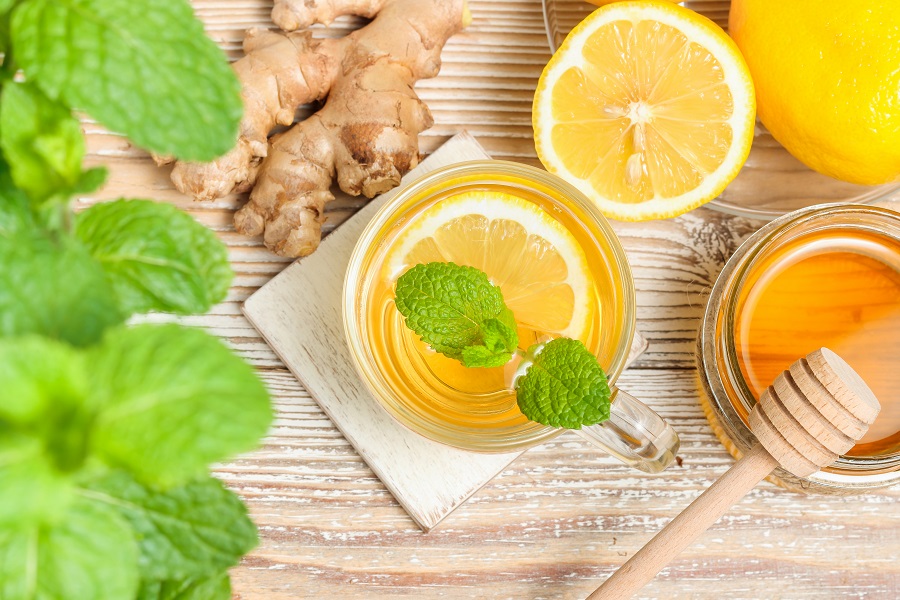Dry cough can be relieved with natural remedies, but if they persist, the causes must be sought, because they could be a sign of other pathologies.
Dry cough and oily cough are bothersome ailments that strike especially in the first colds. It is one of the classic respiratory tract disorders that, even if it does not force you to bed, makes it difficult to carry out normal daily activities.
It tends to intensify at night due to the extended position of the body and which unfortunately do not leave much room for night rest, amplifying the sense of fatigue and physical weakness of the subject.
Know that it is not true that syrup from the pharmacy is needed to pass the cough: there are several effective natural remedies , certainly even more pleasant.
Cough natural remedies and advice
Some general tips if you have a cough that aren’t drugs:
- smokers must avoid cigarettes . Non-smokers should ask smokers around us to avoid smoking in their presence.
- drink a lot, especially water, tea with honey instead of sugar: it is important to prevent inflammation which can worsen the situation
- avoid foods that increase mucus , such as sugar, and foods that are too salty, dairy, and foods rich in carbohydrates
- humidify the environment to keep the mucous membranes well hydrated
- foods , there are also many foods that help soothe coughs, such as garlic, oregano, ginger, chilli, cinnamon, green tea, fruit and vegetables for the defenses
- avoid behaviors that favor the proliferation of bacteria , such as not washing your hands after bringing them to the nose or mouth
Chronic cough
In the presence of dry, persistent and stubborn, and even chronic, dry cough , we recommend that you consult your doctor before attempting any natural remedy.
Do not neglect it, in some cases it can also be an onset of more serious pathologies or signal a problem of the respiratory system or an asthma.
Allergic cough
There is a cough that has nothing to do with bronchial and airway infections, but it is a symptom of allergy . It is generally dry and persistent.
Consult a doctor to find out if yours is such a cough before taking natural treatments that may prove unsuitable or useless.
Types of cough
We then distinguish cough into two types:
Dry cough: accompanied by burning in the throat, does not have phlegm and is particularly annoying with a sensation of dry throat and occlusion; it lasts a long time and is more dangerous than a fat cough
Oily cough: also called productive because there is phlegm (sputum) and it is stronger, but it is more quickly resolved
Dry cough symptoms
In particular, the dry cough is very annoying because it is characterized by the absence of phlegm to expectorate and is often accompanied by burning or a sense of occlusion in the throat.
It derives from an affection of the respiratory tract and has symptoms that tend to persist and may also occur associated with headache , sore throat , nasal congestion, hoarseness , also nausea and vomiting .

Dry cough natural remedies
You can then try to counteract the disorder by resorting to natural remedies to quell the dry cough that becomes annoying especially during the night:
- Hot herbal teas and teas : add 1 tablespoon of honey to hot drinks, herbal teas or tea
- all mallow-based infusions , while taking into account the possible laxative effects of mallow
- infusions based on lime, lime is recommended for its sedative and antispasmodic properties
- infusions based on thyme, thyme is useful for promoting the expectorant effect
- Icelandic lichen , ideal for calming the most persistent coughs
Dry cough in children
In children, dry cough can also be caused by pollutants found in large cities. For the little ones it is more difficult to bear , especially during the night, and can disturb them in this phase of necessary rest.
The classic grandmother’s remedy of dissolving 1 teaspoon of honey in 1 cup of warm milk before going to bed is always effective. In case of more persistent cough , herbal fumigations are recommended, to clear the nose. However, we recommend that you notify your pediatrician.

Still on the subject of coughs or colds, here are some other useful tips:
- Natural remedies for colds
- How to heal a sore throat naturally
- Remedies for tracheitis
- Treating tonsillitis
- Sinusitis : natural remedies
- Flu : how to prevent it naturally
- Natural remedies for tracheitis
Herbal tea for cough
There are so many herbal teas to make at home to relieve and treat dry and oily cough:
Lemon and honey herbal tea: add 1 tablespoon of lemon juice and 1 tablespoon of honey to 1 cup of boiling water, or green tea
The herbal tea with pine and eucalyptus: make an infusion of 1 tablespoon of mixed herbs in a cup of boiling water, to be sweetened with honey; the mixture includes 20 gr of virginian polygala , marshmallow root , pine buds and eucalyptus leaves with 10 gr of rosolaccio petals
Ginger tea: cut 1 ginger root of 2 cm into small pieces and add 2 teaspoons of aniseed and 1 teaspoon ofdried licorice ; leave to infuse for 10 minutes and filter, sweetening with 2 or 3 teaspoons of honey
A ginger, cinnamon and pepper herbal tea: make an infusion of 1 cup of boiling water with 1 tablespoon of ginger , 1 teaspoon of pepper and 1 cinnamon stick , strain and drink with 2 tablespoons of honey.
Cinnamon and lemon herbal tea: boil 1 cinnamon stick in water until the water begins to change color, drink with the addition of 1 tablespoon of honey and 1 of lemon or lime juice
Turmeric, cinnamon and lemon herbal tea: in 1 cup of boiling water make an infusion of 1 tablespoon of lemon juice , the tip of a teaspoon of turmeric , pepper and cinnamon; filter and sweeten with 2 teaspoons of honey.

Fat cough causes
A fat cough is the body’s response to the presence of mucus that clogs the airways. It is essential to promote the healing process from the classic seasonal flu syndromes.
It is a natural protective reflex that the body puts in place to free the bronchi and nose from excess phlegm . It can be caused by bacterial infections, seasonal flu, bronchitis, pneumonia and many other diseases affecting the respiratory system.
Contact your doctor to deal with the right therapy in order to avoid complications.
The pharmacological approach involves the use of mucolytics that help dissolve excess phlegm or courses of antibiotics in the case of more serious bacterial infections. However, there are natural remedies to alleviate the discomfort.
Natural remedies for oily cough
Here are the classic ‘grandma’ remedies to deal with a fat cough:
Herbal tea with honey and lemon: an excellent home remedy because it combines the soothing properties of honey with the immuno-stimulating power of lemon, it is rich in vitamin C and therefore perfect for helping the body to fight infection
Mallow: rich in mucilage, it is one of the best medicinal plants for reducing inflammation and protecting the mucous membranes from external agents; it can be taken as an infusion, herbal tea and combined with a teaspoon of honey to amplify its beneficial effect
Garlic: garlic is a formidable natural antibiotic and has antibacterial properties useful for the treatment of infections that cause fat cough; You can also get benefits from eating raw garlic
Ginger and turmeric: ginger and turmeric also have very strong natural anti-bacterial properties
Licorice: licorice acts as a thinner on phlegm , but be careful not to abuse it
Fumigations: to facilitate the expulsion of phlegm , fumigations can be made with specific essential oils (such as eucalyptus)
Correct nutrition: prefer hot and liquid foods, such as soups, broths, milk and herbal teas, to soften the mucous membranes and sore throat
Fruit and vegetables: consume them in large quantities to fill up on vitamins and minerals and help the immune system

Natural remedies for cough in pregnancy
During pregnancy, pay attention to what you take to calm your cough and treat it . Fortunately, almost all natural remedies are fine, because they have no contraindications.
In particular, there are a couple that turn out to be really ideal. Honey, to be used alone or used to sweeten a cup of tea.
The sage infusion, an aromatic herb good for all tastes and seasons, which in ancient times was considered sacred; boil 8 sage leaves in a cup of water to relieve cough; you can also use it to gargle every 2-3 hours.
To heal yourself more naturally, here are other insights that we recommend you read:
- Guide to the use of propolis for natural therapies
- 10 foods that help the immune system
- Anti- inflammatory herbs , find out what they are
- What are natural analgesics
- Fighting pain with natural pain relievers
- What are natural antibiotics




